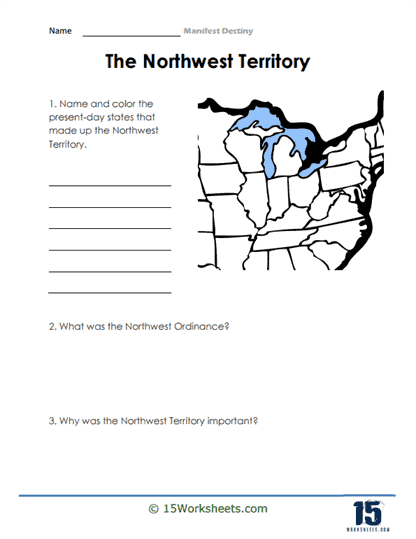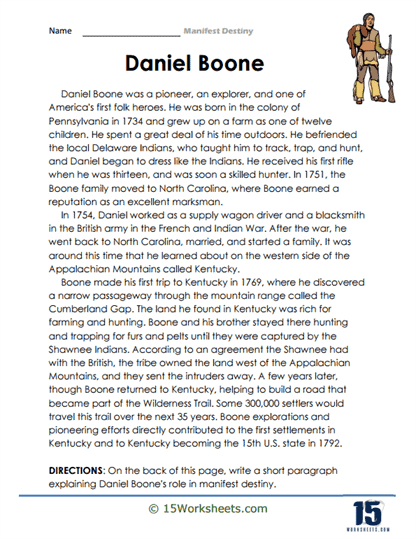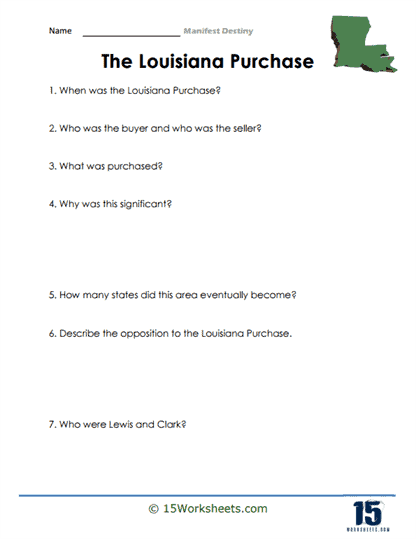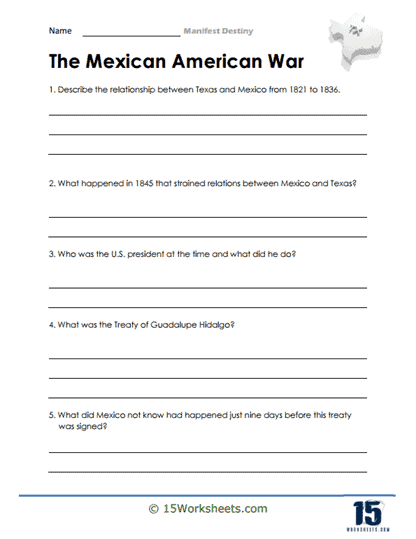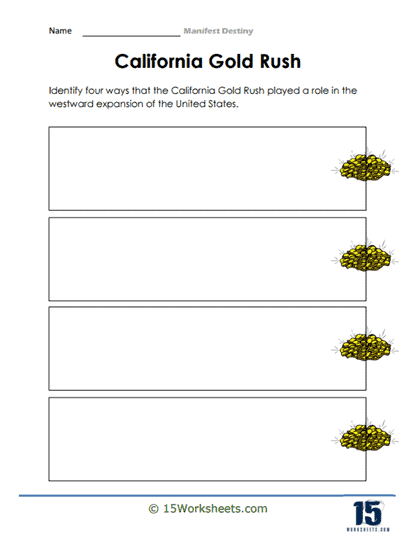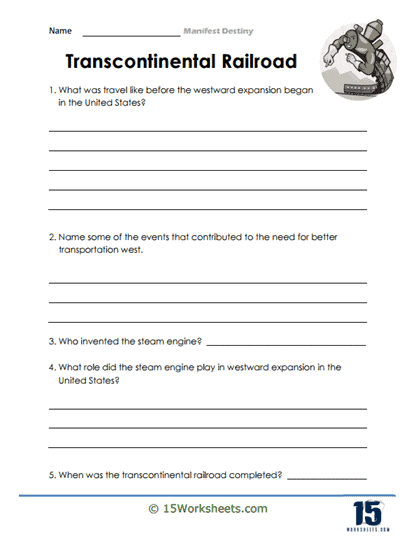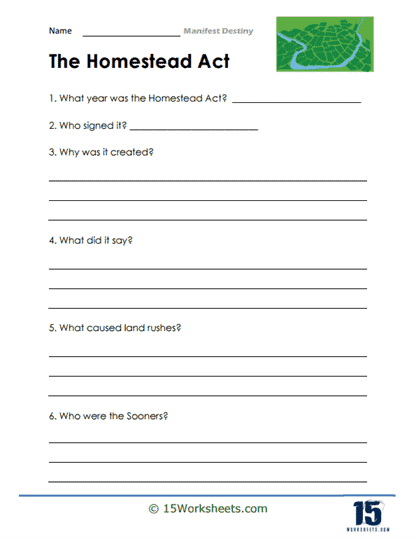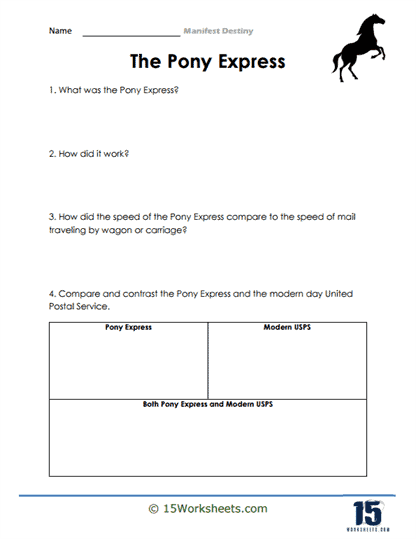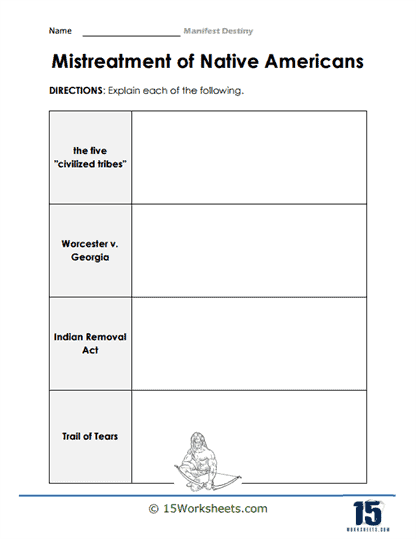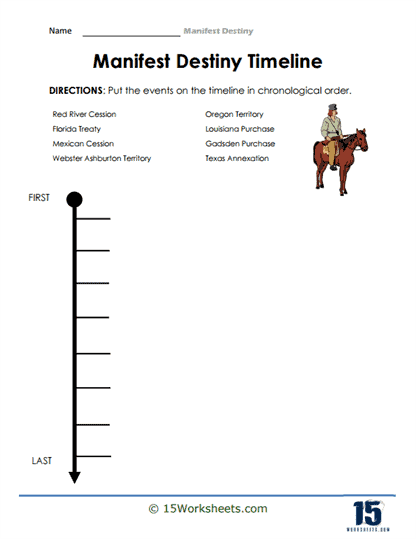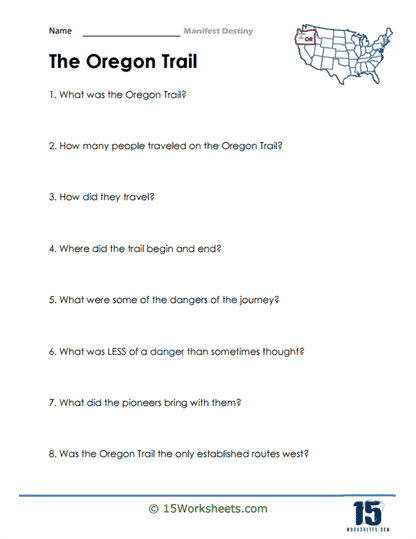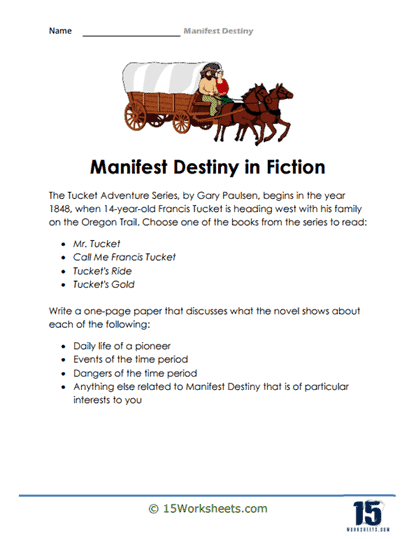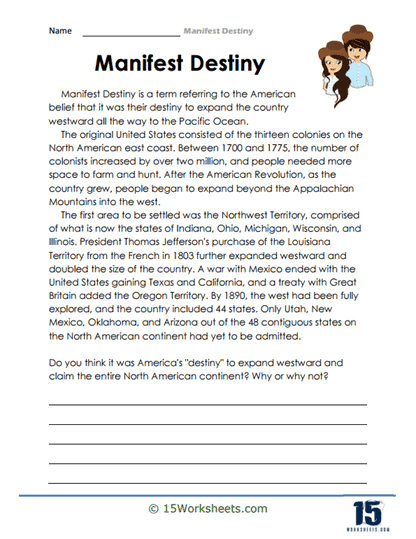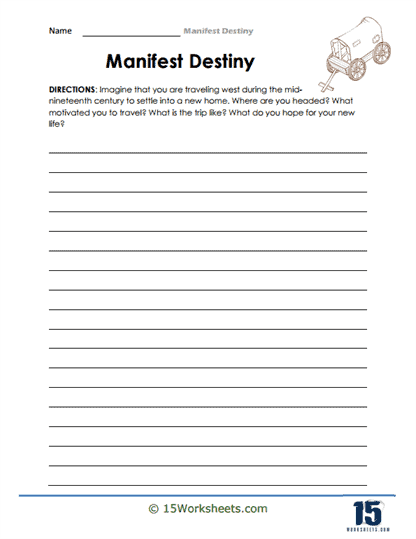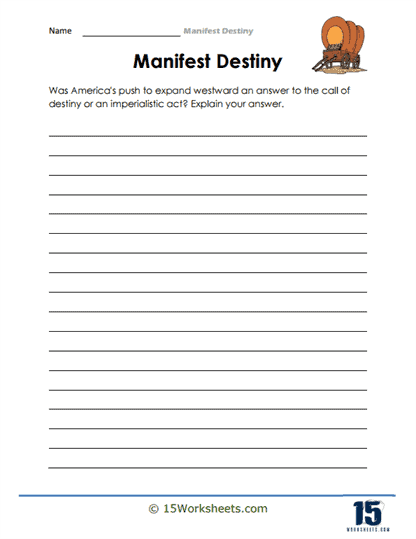Manifest Destiny Worksheets
All About These 15 Worksheets
This series of 15 worksheets is designed to engage students and foster a deep understanding of this influential concept in American history. These worksheets delve into the origins, motives, and consequences of Manifest Destiny. Through thought-provoking activities, critical analysis, and engaging exercises, students will develop a nuanced perspective on this pivotal era and its impact on the United States. This collection also provides an invaluable opportunity for students to explore the complex factors that shaped the nation and its expansion westward. Through these worksheets, students will:
- Fully grasp the historical context and definition of the concept;
- Explore the motivations and beliefs behind Manifest Destiny through engaging reading passages and writing prompts;
- Understand the significance of the Northwest territory and the Northwest Ordinance;
- Examine Daniel Boone’s important role in Manifest Destiny;
- Learn all about the relevant events that coincide with the concept of Manifest Destiny such as the Louisiana Purchase, the Mexican American war, California Gold Rush, Transcontinental Railroad, the Homestead Act, the Pony Express, and the Oregon Trail;
- Put the key events in the correct order across a timeline;
- Create their own paper that discusses and analyzes how Manifest Destiny is shown and discussed in fictional works;
- Study the consequences of the westward expansion on indigenous populations, environment, and political dynamics;
- And reflect on the relationship between Manifest Destiny and the development of American identity.
By engaging with this series of Manifest Destiny worksheets, students will gain a comprehensive understanding of this pivotal era in American history. They will explore the complex motivations, consequences, and legacies of westward expansion, developing critical thinking skills and historical analysis along the way. These thought-provoking activities provide students with the tools to navigate and interpret the diverse perspectives surrounding Manifest Destiny, fostering a deeper appreciation for the complexity of American history and its ongoing relevance today.
What Was the Manifest Destiny?
The Manifest Destiny was a 19th-century belief held by many Americans that it was the nation’s divine destiny and duty to expand its territory and influence across the North American continent, from the Atlantic to the Pacific Ocean. The term “manifest destiny” was first used in the 1840s to describe this expansionist philosophy, which was rooted in a combination of nationalism, imperialism, and religious and cultural beliefs.
The Manifest Destiny was fueled by a number of factors, including the belief in American exceptionalism, the desire for new lands and resources, and the sense of adventure and exploration. It was also influenced by the prevailing racist and Eurocentric attitudes of the time, which viewed non-white and non-European peoples as inferior and in need of “civilizing.”
The idea of manifest destiny served as a rallying cry for westward expansion, which was marked by the annexation of Texas, the Mexican-American War, and the acquisition of the Oregon Territory, California, and other western lands. These territorial gains enabled the United States to achieve its goal of coast-to-coast expansion and become a major global power.
However, the Manifest Destiny also had significant negative consequences, particularly for Native American and Mexican populations, who were forcibly displaced, dispossessed, and marginalized in the process of westward expansion. The policy of westward expansion and the related injustices towards Native Americans and Mexicans contributed to a legacy of oppression, racism, and inequality that persists to this day.
In summary, the Manifest Destiny was a 19th-century belief in the United States’ divine destiny to expand its territory and influence across the North American continent. While it served as a unifying and inspiring vision for many Americans, it also had significant negative consequences and contributed to a legacy of injustice and inequality.

